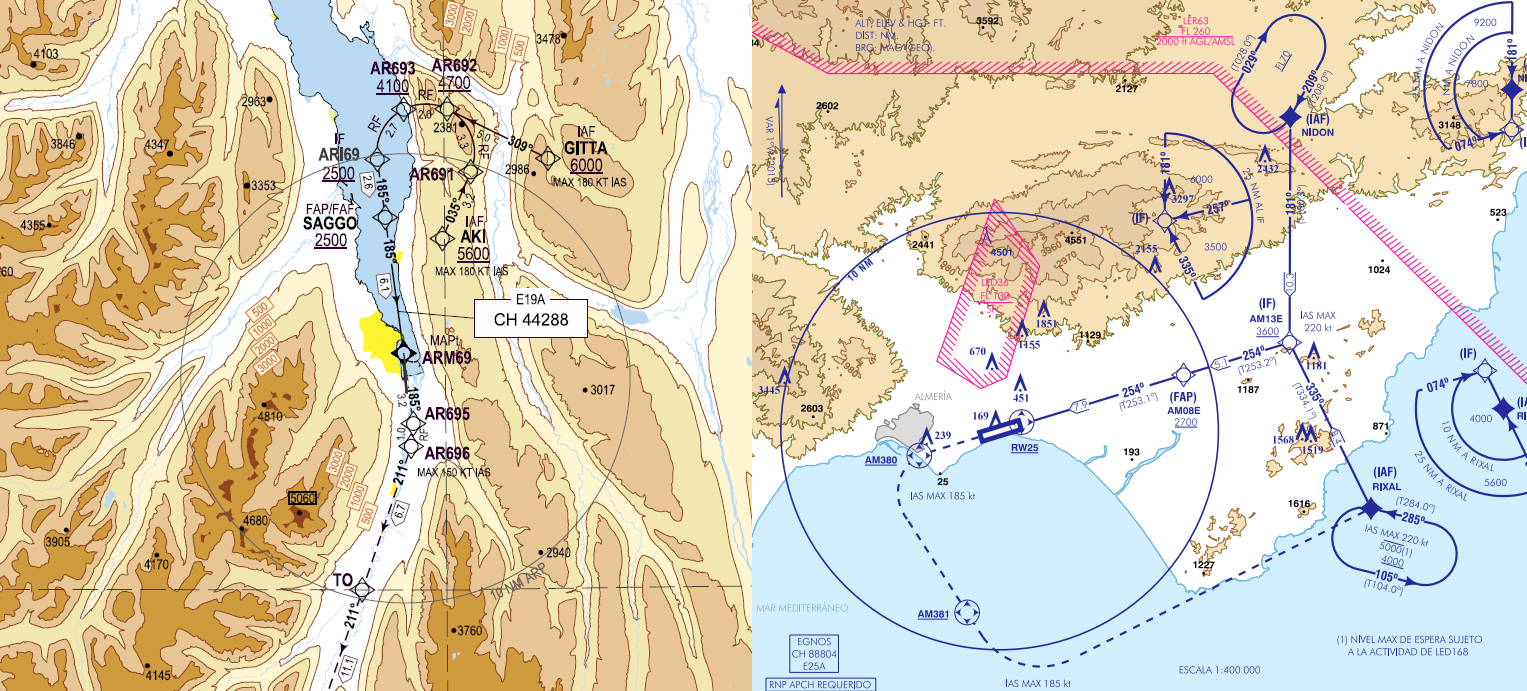
Transforming aviation towards a more environmentally-friendly transport mode is a key priority for the segment right now, accelerated by the European Green Deal. Greenhouse Gas (GHG) emissions, carbon footprint and noise levels are some elements which aviation aims to reduce. For this reason, ANSPs are implementing greener solutions to their skies, at the same time that air operators make use of more efficient operational flight techniques that contribute to that purpose.
Particular examples of these practices have been proved theoretically in two preliminary studies for modelled flights arriving at Almería airport in Spain and Akureyri airport in Iceland. In those locations, the environmental contribution of EGNOS-based approach procedures in combination with the most efficient descending techniques has been compared with the use of conventional navaids –both NDB and ILS- together with conventional operational techniques. For that purpose, a first assessment of fuel consumption, emissions and noise figures were generated, based on theoretical flights performed with different aircraft models, using IMPACT tool from Eurocontrol. Initial results show that the combined use of optimal aircraft performance –CDO- and PBN flight procedure design techniques as a whole -being EGNOS one of the key enablers of this navigation concept-, entail an improvement in comparison with conventional navigation.
The following assessments demonstrate that when comparing the best scenario that includes the best practices -use of RNP procedures and CDO techniques- against the most conventional scenario -NDB/ILS and step-down fix-, an air operator arriving from the south of Akureyri or Almería is potentially able to fly less distance and therefore to save fuel, decrease GHG emissions and also reduce the area affected by noise. This study may be performed to other specific scenarios in the future.
Preliminary estimations at Akureyri (BIAR), Iceland
Preliminary estimations at Almería (LEAM), Spain
Finally, it is suggested to consult the Environmental tool on fuel and emissions savings thanks to EGNOS, which is available in the EBCAST section of the EGNOS User Support Website, in order to get estimated calculations based on your specific scenario.
